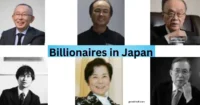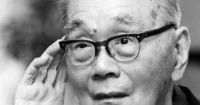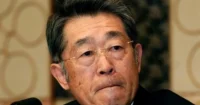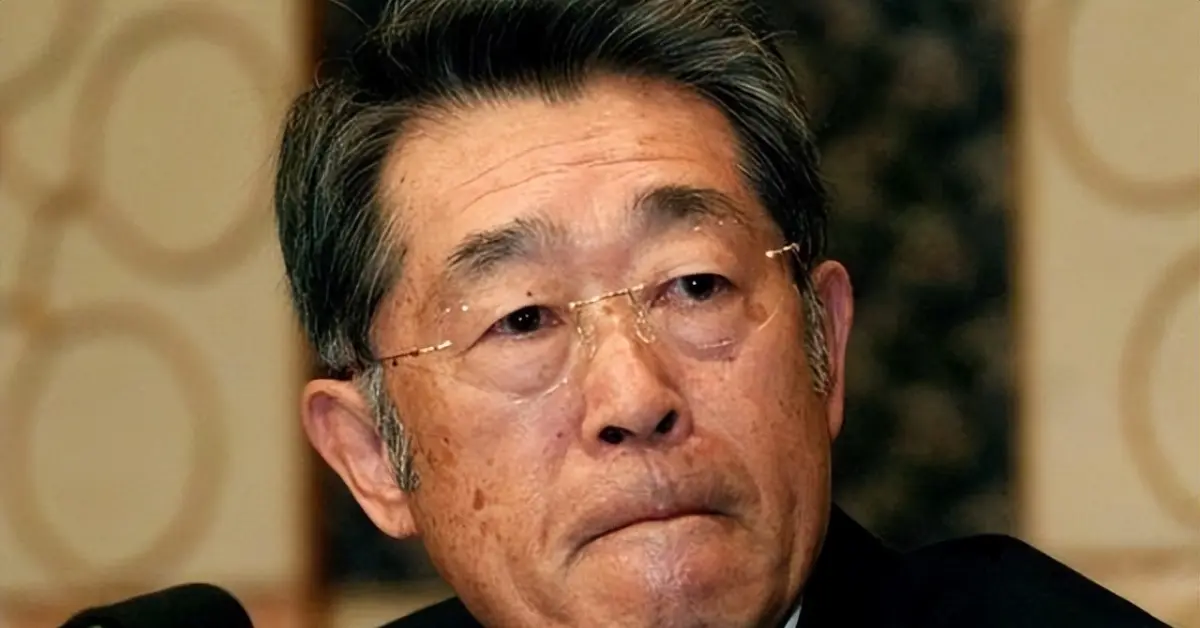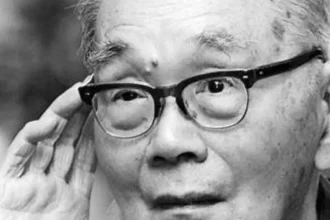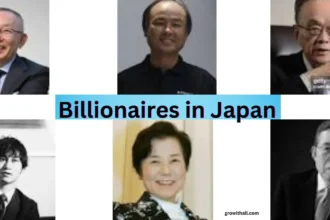Introduction
Yoshiaki Tsutsumi’s name became one of the most recognized in Japan during the economic boom of the 1980s and 1990s. Known as a visionary businessman, Tsutsumi expanded his family’s business, the Seibu Corporation, into one of Japan’s largest and most influential conglomerates. His control spanned railways, real estate, hotels, resorts, shopping centers, and even sports teams, giving him influence over key aspects of Japanese daily life and leisure. The scale and diversity of his empire were unprecedented, creating what came to be known as the “Seibu Kingdom.”
At his peak, Tsutsumi’s net worth reached a staggering $20 billion, placing him at the top of Forbes’ list of the world’s wealthiest people several times from the late 1980s to the early 1990s. His status as the world’s richest man made him a symbol of Japan’s rapid economic expansion and prosperity. Yet, this wealth and influence came at a cost. Beneath the success lay a story of corporate secrecy, regulatory bypassing, and, ultimately, a scandal that would lead to his conviction for insider trading and falsified financial reporting. This article provides an in-depth exploration of Yoshiaki Tsutsumi’s life, achievements, and fall from grace, offering a comprehensive look at one of Japan’s most iconic—and controversial—business figures.
Early Life and Family Background
The Tsutsumi Family Legacy: Founding Seibu Corporation
Yoshiaki Tsutsumi was born into privilege on May 29, 1934, as the son of Yasujiro Tsutsumi, one of Japan’s most successful self-made businessmen. Yasujiro began his career with modest means, eventually becoming a wealthy and influential figure through strategic investments in real estate and transportation. He understood that Japan’s modernization would require expansive transportation networks and sought to capitalize on this demand. The Tsutsumi family’s initial fortunes were built on private railway networks and land development, forming the backbone of what would later be known as the Seibu Corporation.
The Seibu Corporation’s success positioned the Tsutsumi family as leaders in post-war Japan’s rebuilding efforts. Yasujiro’s strategic vision focused on acquiring land along planned rail routes, which not only ensured steady revenue from transit but also increased the value of adjacent properties, many of which were family-owned. This foresight established a business model that Yoshiaki would later take to new heights.
Sibling Rivalry and Business Tensions
When Yasujiro Tsutsumi passed away in 1964, he divided his holdings between his two sons, Yoshiaki, and his half-brother, Seiji Tsutsumi. This decision led to the formation of two competing corporate empires, with Yoshiaki inheriting Seibu Railway and associated properties, while Seiji took control of Seibu Department Stores, later rebranding it as Seibu Saison Group. Seiji expanded his business into retail and finance, transforming it into a separate powerhouse with the Credit Saison credit card company at its center. This division of assets led to a long-standing rivalry between the brothers, each striving to outdo the other.
The family rivalry extended beyond mere business competition; it became a deeply personal feud fueled by their father’s high expectations and the brothers’ contrasting personalities. Yoshiaki was known for his authoritarian management style, focusing on intense control and rapid expansion, while Seiji’s approach was more innovative and customer-oriented, emphasizing diversification in retail and finance. This tension between them would become a focal point in Japanese media, symbolizing the complexities of family-owned business empires.
Education and Preparation for Leadership
Yoshiaki Tsutsumi attended Waseda University, one of Japan’s most prestigious institutions, where he studied economics. His education provided a formal understanding of Japan’s economic system, which was invaluable as he assumed control of Seibu. After graduating, he began working under his father, absorbing Yasujiro’s insights on real estate, market trends, and urban development. By the time he officially inherited the business, Tsutsumi had developed a deep understanding of Seibu’s operations and the Japanese market. His leadership style, however, diverged from his father’s caution; Yoshiaki was far more aggressive and ambitious in his approach, seeking to expand Seibu’s reach and dominance across various sectors.
Building the Seibu Empire
Expansion through Real Estate and Infrastructure
Once in control, Yoshiaki Tsutsumi employed a strategy that capitalized on Japan’s urbanization, expanding Seibu’s business from railways to include real estate, leisure, and tourism. His model centered on acquiring land around Seibu’s railway lines and developing it into commercial and residential spaces, hotels, and entertainment complexes. This integration of transportation and property development was revolutionary for Japan, as it created a network of interconnected services that catered to the needs of Japan’s growing middle class.
Tsutsumi’s expansion extended beyond city borders, transforming once-remote areas into bustling hubs of tourism and recreation. Notable among these was Karuizawa, a mountain resort town popular among tourists. Tsutsumi developed hotels, golf courses, and ski resorts in such locations, making Seibu a leader in Japanese leisure and tourism. These investments not only diversified Seibu’s portfolio but also created brand loyalty, as customers associated Seibu with quality and convenience in travel and recreation.
The Development of the “Seibu Kingdom”
Tsutsumi’s Seibu empire became so vast and interconnected that it earned the nickname “Seibu Kingdom.” This ecosystem allowed Tsutsumi to dominate multiple sectors simultaneously. A Japanese citizen could take a Seibu train to a Seibu-owned mall, enjoy a meal at a Seibu restaurant, and stay in a Seibu hotel—all without leaving his business network. This complete ecosystem of services and amenities created a monopoly-like presence in parts of Japan. Seibu held a substantial share of employment and controlled various aspects of local economies.
Seibu’s influence was particularly strong in urban centers like Tokyo, where commuters relied heavily on Seibu’s railway network. By embedding real estate developments alongside transportation, Tsutsumi maximized revenue from both transit and property, a strategy that generated immense profits. This model of integrated transportation and development became a case study in urban planning and commercial expansion, influencing subsequent infrastructure projects in Japan and beyond.
Innovations in Leisure and Tourism
Anticipating Japan’s shift toward a more leisure-oriented culture, Tsutsumi expanded Seibu’s reach into tourism and hospitality. Prince Hotels, a chain owned by Seibu, became one of Japan’s most popular hotel brands, with properties in prime locations such as Tokyo and Kyoto. Tsutsumi also invested heavily in ski resorts, golf courses, and recreational facilities, making Seibu a pioneer in Japan’s tourism industry.
These developments catered to Japan’s rising middle class, who had disposable income to spend on travel and recreation. The popularity of Seibu’s hotels and resorts helped drive domestic tourism, which in turn boosted local economies. Through his investments in leisure, Tsutsumi not only capitalized on emerging trends but also helped shape Japanese culture by promoting recreation as a key aspect of modern life.
The Pinnacle of Wealth and Global Recognition
Ascending to the Top of the World’s Richest
By the late 1980s, Tsutsumi’s wealth was estimated at around $20 billion, placing him at the top of Forbes’ list of the world’s wealthiest people. His peak years of wealth aligned with Japan’s economic bubble, a period of explosive growth in real estate and stock prices driven by speculative investments and a lack of regulatory controls. Tsutsumi’s extensive real estate holdings, valued in the billions, pushed him to the forefront of global wealth rankings.
The size of Tsutsumi’s fortune was almost mythical, reflecting both his business acumen and the speculative nature of Japan’s economy at the time. The Seibu empire’s vast landholdings were rumored to be worth more than entire U.S. states, underscoring the extent of Tsutsumi’s influence. His presence on the global stage as the world’s richest man made him a symbol of Japan’s economic prowess during its boom years.
Cultural Influence through Sports and the Arts
Beyond his financial achievements, Tsutsumi left an indelible mark on Japanese culture, particularly in sports. He founded the Seibu Lions baseball team, a move that strengthened Seibu’s brand and contributed to Japan’s baseball fandom. In addition to baseball, Tsutsumi invested in various other sports initiatives, using his influence to promote athletic events and facilities across Japan.
His investment in sports extended to international arenas as well, with Tsutsumi playing a key role in securing the 1998 Winter Olympics for Nagano. His involvement in Japan’s Olympic bid was both a business move and a demonstration of his patriotism, showing his commitment to Japan’s global representation. However, his influence raised ethical questions, as Seibu-owned properties in Nagano stood to benefit financially from the increased tourism brought by the Olympics.
The Seibu Scandal and Downfall
Insider Trading and Financial Falsification
In 2004, Japanese authorities began an investigation into Seibu Corporation’s financial practices, revealing that Tsutsumi had manipulated shareholder reports to maintain control over the company. Tsutsumi falsely reported that the distribution of Seibu’s stock was to comply with Tokyo Stock Exchange regulations, concealing his effective ownership of more than 80% of Seibu’s shares. This breach of trust and corporate manipulation shocked the public, as the scandal severely damaged Tsutsumi’s reputation.
Legal Consequences and Sentencing
In 2005, Tsutsumi was convicted of insider trading and falsifying financial statements. He received a 30-month suspended prison sentence and was fined five million yen, a relatively small amount given his past wealth. The scandal led to Seibu Corporation’s delisting from the Tokyo Stock Exchange, a humiliating consequence for one of Japan’s largest companies. The fallout also prompted Seibu to restructure, with U.S.-based Cerberus Capital eventually becoming a major shareholder.
The Impact on Seibu and Corporate Japan
The Seibu scandal brought to light serious issues within Japan’s corporate governance, highlighting the dangers of unchecked power in family-run conglomerates. The incident led to stricter regulatory oversight in Japan as the government sought to restore public trust in the stock market. For Seibu, the scandal marked the end of an era, as the company’s reorganization diminished Tsutsumi’s control and changed the business landscape he had dominated for decades.
Legacy and Lessons from Tsutsumi’s Empire
The Influence on Japanese Corporate Culture
Despite the scandal, Tsutsumi’s influence on Japanese corporate culture remains significant. His approach to integrating transit with real estate set a precedent for urban development and was emulated by other Japanese companies. Tsutsumi’s model of linking transportation and tourism created a template for subsequent developments in Japan’s leisure industry, influencing how corporations engage with infrastructure and lifestyle services.
Ethical Implications and Regulatory Reforms
Tsutsumi’s downfall highlighted the importance of corporate transparency and ethical governance. His actions underscored the risks of excessive centralization of power and the potential consequences of manipulating financial disclosures. The Seibu scandal influenced regulatory reforms in Japan, emphasizing the need for oversight and accountability in publicly traded companies.
Reflections on Wealth and Responsibility
Yoshiaki Tsutsumi’s life story illustrates both the potential for wealth to create positive social impacts and the dangers it poses when unchecked. His contributions to Japanese business, leisure, and culture reflect the transformative power of ambition, while his fall serves as a cautionary tale on the responsibilities that accompany great influence.
Final Words
Yoshiaki Tsutsumi’s life encapsulates the highs and lows of Japan’s economic history, serving as a lens through which to understand the dynamics of wealth, power, and corporate governance in Japan. His innovative business practices helped modernize Japan, yet his eventual downfall exposed the vulnerabilities of opaque corporate structures. Through both his achievements and mistakes, Tsutsumi’s legacy offers valuable lessons for future business leaders on the importance of ethical leadership and the impermanence of wealth.





